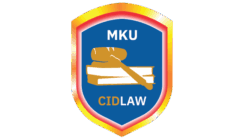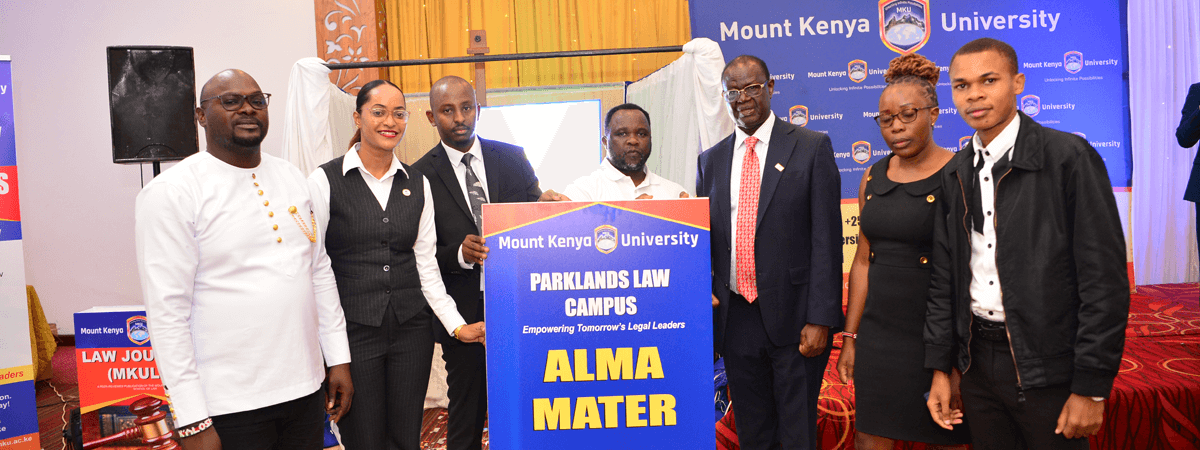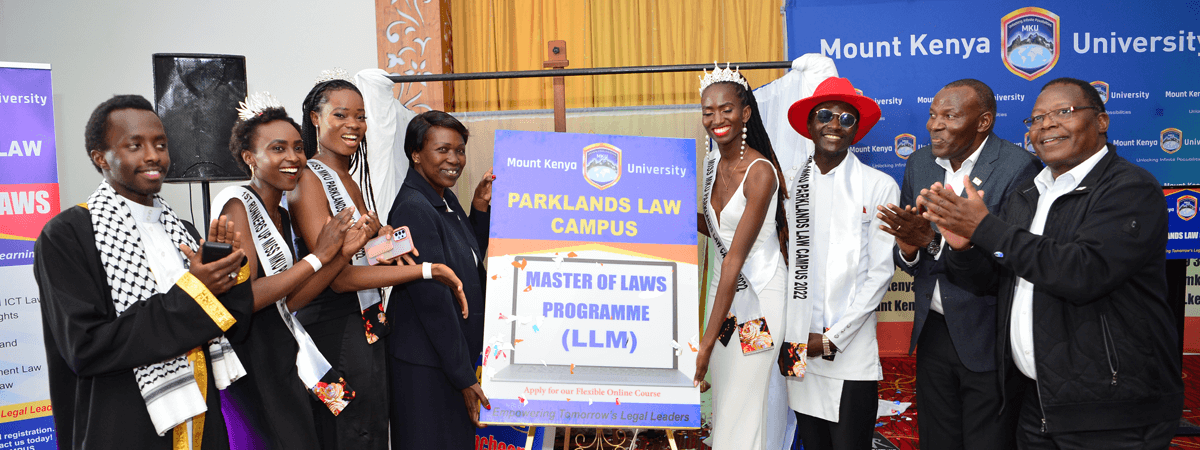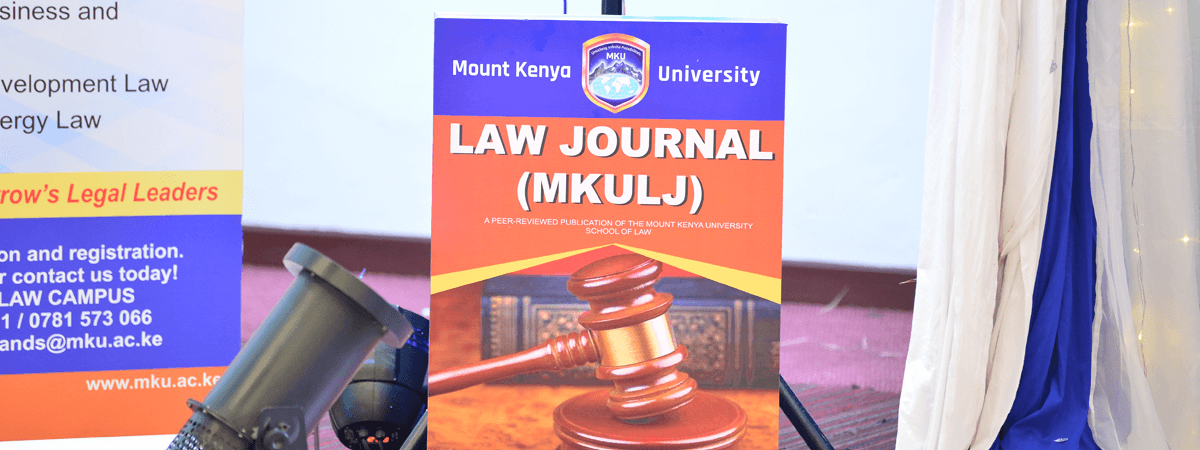
As Read on her behalf by Njeri Mwangi Wachira, MBS, EBS, Senior Deputy Solicitor General
On the occasion of the mou signing Between Mount Kenya University, The Chartered Institute of Arbitrators and the International Law Institute – South African Centre for Excellence On Monday, 19th May 2025 at Mount Kenya University
Salutation :
The Vice Chancellor, Prof. Deogratius Jaganyi
Prof. Githu Muigai, Senior Partner at Mohammed Muigai LLP and Attorney General Emeritus
Ms. Jacqueline Waihenya, Chairperson Chartered Institute of Arbitrators Kenya Chapter
Mr. Swithin Munyantwali – Vice Chairperson and Co-founder of ILI – South Africa
Dr. Hezekiel Oira, Dean MKU School of Law
Prof. Kenneth Mutuma, Vice Chairperson CIArb Kenya
DVCs present, Students and Colleagues,
Ladies and Gentlemen: Good morning.
Allow me first on my own behalf and that of the legal fraternity to congratulate you on signing the MOU between your esteemed institutions. It is a privilege to stand before you today, not just as the Attorney General, but as a fellow traveller on this journey toward a more just and equitable Africa. We gather here at a defining moment, one that calls us to reflect deeply on the intersection of legal education, professional practice, and Africa’s place in the global legal order.
Ladies and Gentlemen, The Memorandum of Understanding that will be signed today is a statement of intent between highly esteemed institutions. It is a shared recognition that the challenges we face demand nothing less than a reimagining of how we prepare the next generation of legal minds.
Let me be clear: the lawyer that Africa needs today is not the lawyer of yester years. The complexities of investment disputes, the tensions between development and sustainability, the delicate balance between sovereignty and global engagement, all these require a new kind of legal professional.
Consider for a moment the landscape we operate in. Since 1993, African nations have faced over 170 investor-state dispute settlement cases. Some have resulted in awards running into billions of dollars—a staggering sum for any economy. Others have seen governments spend millions defending their legitimate policy space in foreign tribunals. And here’s the painful truth: even when we win, we lose. The mere act of defending ourselves in these forums drains resources that could be building schools, hospitals, or infrastructure.
Be that as it may, let us not mistake analysis for lamentation. Africa is not sitting by idly. The African Continental Free Trade Area (AfCFTA) Investment Protocol represents our collective assertion that another way is possible — a way that protects investors while safeguarding our right to pursue development policies that lift our people out of poverty. This is not about closing doors to foreign investment; it’s about ensuring that when investment comes, it serves African interests as much as it serves corporate balance sheets.
At the national front, the Government has also taken initiatives to safeguard our interests and priorities even as we encourage foreign investment. This has included the adoption by Cabinet of a decision to terminate, revoke or renegotiate a number of old generation or first generation Bilateral Investment Treaties that contained provisions that are mostly detrimental to Kenya.
In 2019, my Office in collaboration and consultation with the National Treasury spearheaded a process of development of a new Investment Policy and a Model Bilateral Investment Treaty to be used by Kenya in the negotiations of investment treaties. The Investment Policy and model BIT were instrumental when Kenya participated in the negotiations of the AfCFTA Investment Protocol and they continue to guide the Kenyan delegation in ongoing Bilateral Investment treaty negotiations with a number of countries (Hungary, Spain, Oman, Brazil and Thailand).
In the past decade, the international investment law regime came under attack due to what was seen by States as promoting an Investor State Dispute Mechanism System (ISDS) which is heavily skewed in favour of investors. Since 2017, my Office has been participating in the United Nations Commission on International Trade Law (UNCITRAL) Working
Group III negotiations on Investor-State Dispute Settlement Reforms. Having been enjoined in a number of international arbitration matters, it was necessary for Kenya to contribute and have her interests safeguarded in those negotiations.
Ladies and Gentlemen, Treaties and protocols alone are not enough. The world relies on places like this: in lecture halls where critical thinking is nurtured, in moot courts where advocacy skills are honed, in mediation rooms where disputes find resolution before they escalate. That is why this partnership between
Mount Kenya University, CIArb, and ILI–South African Centre for Excellence matters so profoundly. It creates a pipeline, from classroom to courtroom to boardroom, that will produce lawyers equipped not just with technical knowledge, but with the wisdom to apply that knowledge in service of Africa’s transformation.
To the students here today: this is your charge. You will be the ones drafting investment agreements that protect environmental resources while attracting green energy projects. You will mediate disputes between communities and corporations, finding solutions that honour both economic realities and social justice. You will argue cases that set precedents for how African legal systems engage with International law. The weight of this responsibility is great, but so too is the opportunity to shape history.
We stand at an inflection point. Africa’s mineral wealth, our youthful population, our growing digital economy, all these are attracting global attention. With this attention comes both opportunity and challenge. Will we be passive recipients of legal frameworks devised elsewhere, or active architects of systems that reflect our values and aspirations? The answer lies in our collective commitment to initiatives like this one, initiatives that build capacity, foster innovation, and most importantly, centre African voices in the global legal discourse.
As I conclude, let me echo the visionary words of Africa’s Agenda 2063:“The Africa we want is one where institutions are strong, inclusive, and people-centered.” This Africa we envision will not be built in courtrooms alone. It will be forged in classrooms where critical thinking is nurtured, in training halls where skills are sharpened, and in collaborative forums exactly like this one — where theory meets practice, and ambition meets action.
May this MOU we sign today be more than a symbolic gesture. Let it be a living covenant — a practical foundation for transformative legal capacity building across our continent. Let it inspire curricula that empower, research that enlightens, and partnerships that endure. To our students: you carry our collective aspirations. To our institutions: You hold our shared trust. And to all gathered here: Our work continues in earnest today.
I would like to assure you both at a personal level and that of the Office of the Attorney-General, of continued commitment to transformative legal capacity building here in Kenya and beyond. I wish you all fruitful deliberations, enduring collaborations, and success that will echo through Africa’s legal landscape for generations to come.
Thank you.



